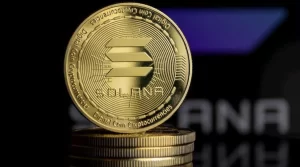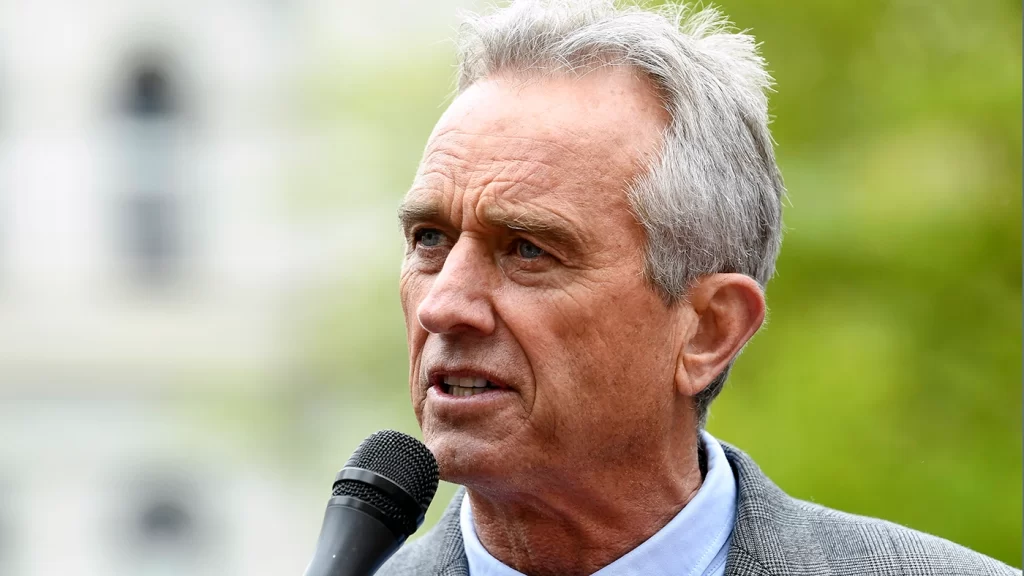Bitcoin (BTC) managed to bounce back above the $29,000 mark on August 8, as one trader detected signs of a potential breakout in progress.
Following a slight rebound from local lows of $28,670, Bitcoin remained within a narrow range and seemed to mirror movements in the United States equities during the August 7 Wall Street trading session.
Although there was no significant momentum in either direction, market participants were eager to identify signals indicating a possible return of a trend.
Trader Jelle spotted a potential falling wedge breakout on daily timeframes, noting that this formation could lead Bitcoin’s price to a target of $32,000.
This wedge pattern had emerged at the beginning of July, marking the second such formation in two months, the first one appearing from April to the end of June.
Michaël van de Poppe, the founder and CEO of trading firm Eight, characterized the previous day’s dip as a standard correction.
He observed that the market quickly bounced back, resulting in a decent daily candle. However, market participants were also keeping a close eye on the July print of the U.S. Consumer Price Index (CPI), which has historically been a catalyst for crypto market volatility.
On intraday timeframes, the situation was more complex as market makers and takers engaged in a dynamic interplay on exchanges.
Skew, a popular trader, highlighted that failure to break down the price forced spot takers to bid, particularly since they had led the sell-off around the $29,000 level.
In a more optimistic analysis, Yann Allemann and Jan Happel, co-founders of on-chain analytics firm Glassnode, argued that the dip below $28,000 held more significance as a local bottom than many realized.
According to Glassnode’s Risk Signal metric, Bitcoin was at its highest-risk trading level in several months.
Coupled with a neutral signal on altcoins and overall volatility near its lowest-ever values, the market was poised for potential bullish activity.
As the market approached being oversold, there were indications that bulls might step in, particularly if Bitcoin tapped the liquidity pool at around $28,500.
This was viewed as a potential reversal point that market participants had been hoping for.
However, given the volatile nature of the cryptocurrency market, caution was advised as fluctuations could quickly alter the landscape.
Other Stories:
2024 Presidential Candidates’ Mixed Views on Crypto
Chamber of Digital Commerce Releases Report on SEC vs Ripple Ruling
Digital Currency Group Faces Regulatory Scrutiny Over Transactions with Genesis Global Capital
Tech entrepreneur Ilya Lichtensteind, a dual Russian-American citizen, has confessed to perpetrating the original 2016 Bitfinex hack, according to CNBC.
Along with his wife, Heather Morgan, the couple admitted to attempting to launder a staggering $4.5 billion worth of Bitcoin stolen from Bitfinex.
Until Thursday’s admission, the identity of the hacker responsible for the 2016 cryptocurrency heist had remained undisclosed.
Interestingly, while the couple confessed to attempting to launder the stolen funds, they were not charged with the actual hacking incident itself.
Heather Morgan, also known by the alias “Razzlekhan,” added an unusual twist to their criminal escapade by venturing into the realms of rap music and tech entrepreneurship while evading law enforcement.
Her music videos and rap lyrics depicted her as a “bad-ass money maker” and a “crocodile of Wall Street,” while Forbes articles portrayed her as a successful tech magnate, economist, serial entrepreneur, software investor, and rapper.
The duo’s sophisticated money laundering operation involved meticulously dividing the stolen Bitcoins into smaller amounts and routing them through thousands of different crypto wallets using false identities.
They further intertwined these funds with other criminal cryptocurrency proceeds on the darknet marketplace Alphabay, purchased gold coins, and channeled them through shell companies to legitimize their ill-gotten gains.
However, investigators managed to trace the couple’s criminal proceeds back to the Bitfinex hack when they discovered a trail leading to Walmart gift cards purchased with stolen funds. The veil of anonymity the couple hoped for through complex transactions between various exchanges and cryptocurrencies began to unravel.
A breakthrough came when law enforcement raided the couple’s Manhattan residence, uncovering a wealth of incriminating evidence, including mobile phones hidden in hollowed-out books, disposable handsets, USB drives, and $40,000 in cash.
READ MORE: Best Crypto Casinos In 2023
Decrypting a meticulously crafted spreadsheet revealed their intricate web of money laundering strategies, leading to the recovery of almost the entire stolen amount.
Communication records exposed the couple’s plans to flee to Russia, Ilya Lichtenstein’s country of birth, to avoid arrest.
Thankfully, law enforcement thwarted their escape, potentially preventing them from evading justice.
The 2016 hack had severely impacted Bitfinex customers, resulting in a collective loss of 36% of their holdings on the crypto exchange.
By 2019, the exchange managed to reimburse the affected customers, offering hope for a financial recovery once the recovered Bitcoins were returned to the rightful owners.
As legal proceedings unfold, Ilya Lichtenstein faces a maximum 20-year prison sentence, while Heather Morgan could be sentenced to up to 10 years behind bars.
The U.S. Department of Justice reported seizing an additional approximately $475 million tied to the hack since the couple’s arrest in February 2022, indicating the ongoing efforts to recover the stolen funds.
Other Stories:
JPEG’d DeFi Protocol Recovers $10 Million in Stolen Crypto After Hacker Returns Funds
Chamber of Digital Commerce Publishes Impactful Analysis on SEC’s Ripple Lawsuit
Bitcoin’s Hodl Strategy Outperforms Crypto Funds by 68.8% in H1 2023
Bitcoin (BTC) appears to be gearing up for a full-fledged bull phase, according to market analyst Cole Garner.
Despite its current price stagnation at around $29,033, many experts believe that this cycle will follow the classic pattern of previous bull runs.
One of the key indicators of optimism is the activity among the largest-volume cohort of Bitcoin investors, known as whales.
Garner considers whale accumulation trends to be the backbone of a bull market.
Analytics team Jarvis Labs also reported an ongoing “multi-month buying frenzy” among whales, as well as smaller investors (referred to as fish) increasing their BTC exposure.
The behavior of whales during this cycle has been notable, with some experts calling them “diamond hands” for holding onto their BTC positions rather than selling aggressively like they did in the previous cycle.
This shift in whale behavior is seen as a positive sign for the market.
Another significant factor in predicting a potential BTC price breakout is the Bitcoin-to-stablecoin ratio on Bitfinex, which has historically preceded major bull runs.
Garner emphasizes that Bitfinex is considered the “smart money exchange” and that the behavior of its whale traders can strongly influence short-to-medium-term price action in the crypto market.
While Garner expects a bullish breakout in the third quarter, he acknowledges that summer seasonality could potentially cause a shakeout before that.
Nonetheless, he believes that the markets still have several weeks to run before any potential downturn.
To invalidate the bullish outlook, Bitcoin would need to close below its 200-week simple moving average (SMA), which currently stands at $27,235.
As long as BTC remains above this level, the positive momentum is likely to continue.
Overall, analysts like Garner remain optimistic about the future of Bitcoin and the broader crypto market.
With whale accumulation and investor behavior supporting the bullish thesis, many in the crypto community are anticipating significant upside potential for Bitcoin in the coming months.
However, as with any market, unpredictability and potential risks remain, and traders should approach the situation with caution.
Other Stories:
U.S. Senators Call for Crackdown on North Korea’s Cryptocurrency Funding of Nuclear Program
Coinbase CEO Affirms Commitment to US Amid Regulatory Uncertainty
Latvia Sees Decline in Crypto Asset Purchases Amidst Concerns Over Fraud and Money Laundering
Crypto asset manager Grayscale has expressed the belief that the next U.S. President will be supportive of central bank digital currencies (CBDCs), as stated in a recent blog post.
Grayscale highlights that the current frontrunners of both major political parties, Joe Biden and Donald Trump, have shown a willingness to explore CBDCs, though they are less enthusiastic about Bitcoin.
Trump has publicly called Bitcoin a “scam,” once tweeting his discontent with the cryptocurrency, criticizing its volatile value.
Similarly, Biden’s stance towards Bitcoin can be deduced from his support for a 30% tax on Bitcoin mining, a move that could negatively impact the U.S. mining industry.
Grayscale also pointed out Trump’s favorability towards non-fungible tokens (NFTs), with Trump having launched and sold two NFT collections.
Biden’s support for digital assets can be inferred from his “Executive Order on Ensuring Responsible Development of Digital Assets,” although the 2023 Economic Report of the President did not share the same enthusiasm for cryptocurrencies.
Other crypto-friendly candidates include Robert Kennedy Jr. and Ron DeSantis, both of whom rank second in their respective party’s polls.
READ MORE: JPEG’d DeFi Protocol Recovers $10 Million in Stolen Crypto After Hacker Returns Funds
Kennedy recently bought two Bitcoins for each of his seven children and endorsed Bitcoin as a “bulwark” against government intrusion at the Miami Bitcoin Conference.
He promised, if elected, to preserve the right to hold and use Bitcoin.
In contrast, both Kennedy and DeSantis have expressed opposition to CBDCs. DeSantis even signed a bill prohibiting the use of CBDCs in his state and encouraged other states to follow suit.
Among the Republican contenders, more pro-crypto candidates are emerging. Vivek Ramaswamy, with a 7% support level compared to Trump’s 63%, is viewed as pro-Bitcoin and anti-CBDC.
Republican Miami Mayor Francis Suarez, a vocal supporter of crypto technology, has been labeled the most ardent crypto advocate among all candidates.
In summary, Grayscale’s analysis indicates a complex and varied landscape in the 2024 presidential race regarding digital currencies.
While there is a consensus among leading candidates on the exploration of CBDCs, their stance on cryptocurrencies like Bitcoin varies widely.
The emergence of more crypto-friendly candidates further adds to this multifaceted picture.
Other Stories:
Chamber of Digital Commerce Publishes Impactful Analysis on SEC’s Ripple Lawsuit
Elon Musk Puts Rumors to Rest: X Has No Plans to Launch Crypto Tokens
Bitcoin’s Hodl Strategy Outperforms Crypto Funds by 68.8% in H1 2023
Bitcoin (BTC) appears to be gearing up for a powerful bull phase, according to market analyst Cole Garner. Despite the current stagnant BTC price action, Garner believes that the cryptocurrency market is on the verge of a significant upward trend reminiscent of past cycles.
Garner draws his optimism from the behavior of major Bitcoin investors, often referred to as “whales.” He emphasizes that whale accumulation trends are a crucial indicator of a bull market.
Jarvis Labs, an analytics team, corroborates this sentiment, reporting an ongoing “multi-month buying frenzy” among whales.
Notably, smaller investors, referred to as “fish,” have also been increasing their exposure to Bitcoin. This trend, coupled with whales’ unwavering positions, leads popular technical analyst CryptoCon to label the whales as “diamond hands” during the current cycle.
In contrast to the relentless selling by whales in Bitcoin’s last cycle, the current situation portrays a stark difference.
Retail investors were the ones selling during the bear market, while whales stood their ground.
This phenomenon contributes to the conviction that the current cycle is different and that the market is poised for substantial growth.
One critical factor on which the entire bullish scenario hinges is the Bitcoin-to-stablecoin ratio on Bitfinex, known as the Bitfinex Whale.
This ratio has historically preceded major Bitcoin bull runs. Garner emphasizes the significance of this metric, considering Bitfinex the “smart money exchange” and a key driver of short-to-medium-term price movements in the crypto market.
READ MORE: JPEG’d DeFi Protocol Recovers $10 Million in Stolen Crypto After Hacker Returns Funds
While Garner favors a potential bullish breakout in the third quarter, he acknowledges the potential counter-argument of summer seasonality.
Nevertheless, he believes that any shakeout is likely to occur in September, giving the markets more time to rally.
To invalidate the bullish outlook, Garner highlights the importance of the 200-week simple moving average (SMA) for Bitcoin’s price.
A weekly close below this level, currently at $27,235, would be a critical sign that the bullish phase might not materialize.
In conclusion, Garner’s analysis indicates a strong belief in a forthcoming bull market for Bitcoin and the broader crypto market.
The increasing accumulation by whales and smaller investors, coupled with the historical significance of certain metrics like the Bitfinex Whale, provides an optimistic outlook for BTC’s future price trajectory.
Nonetheless, the 200-week SMA remains a crucial level to watch for potential bearish developments.
Other Stories:
Chamber of Digital Commerce Publishes Impactful Analysis on SEC’s Ripple Lawsuit
Elon Musk Puts Rumors to Rest: X Has No Plans to Launch Crypto Tokens
Bitcoin’s Hodl Strategy Outperforms Crypto Funds by 68.8% in H1 2023
Tether developers are gearing up for the launch of cutting-edge JavaScript libraries designed to streamline the transmission of commands and signals to Bitcoin (BTC) mining hardware, such as WhatsMiner, AvalonMiner, and Antminer.
Paolo Ardoino, the chief technology officer of Bitfinex and Tether, shared the exciting news on X (formerly Twitter). He hinted that certain parts of the mining software might become available on open-source platforms in the future.
The primary goal of Tether’s BTC mining software is to optimize mining capacity management, leading to more efficient operations.
Ardoino highlighted his role as a core contributor to Moria, an orchestration instrument for mining farms. He proudly mentioned that all recent advancements are built using the innovative Holepunch technology.
Previously, Ardoino offered insights into Moria’s functionalities.
This remarkable mining instrument enables seamless communication between components within the BTC mining ecosystem.
It facilitates interactions through streamlined, secure, attack-resistant, and cost-efficient means.
To ensure secure data streaming and command reception, each miner will possess a unique public/private key.
This encryption mechanism will utilize hyper cores for data streaming and hyper swarms for command reception.
Notably, this approach simplifies firewall configuration, bolsters resilience to failures, enables easy replication across multiple sites, and enhances maintainability and modularity compared to previous attempts.
READ MORE: Chamber of Digital Commerce Publishes Impactful Analysis on SEC’s Ripple Lawsuit
Despite facing legal and regulatory challenges, Tether has remained actively engaged in the cryptocurrency mining sector.
The company announced its intention to allocate a portion of its monthly profits towards acquiring BTC.
Moreover, Tether has invested in energy production and sustainable BTC mining in Uruguay, partnering with a local firm.
Uruguay’s renowned robust infrastructure in the renewable energy sector makes it an ideal location for sustainable mining operations.
The country takes pride in its abundant natural resources, allowing it to derive nearly 100% of its electricity from renewable sources.
In conclusion, Tether’s forthcoming JavaScript libraries hold promise for revolutionizing the efficiency of BTC mining operations.
Their commitment to open-source initiatives and sustainable mining practices in Uruguay showcases their dedication to driving positive change in the cryptocurrency industry.
Other Stories:
JPEG’d DeFi Protocol Recovers $10 Million in Stolen Crypto After Hacker Returns Funds
Bitcoin’s Hodl Strategy Outperforms Crypto Funds by 68.8% in H1 2023
Elon Musk Puts Rumors to Rest: X Has No Plans to Launch Crypto Tokens
According to the 2023 “Financial Stability Report” by Latvijas Banka, the number of individuals purchasing crypto assets in Latvia has witnessed a decline.
The central bank attributes this drop in interest to various factors, including negative sentiment stemming from fraud and insolvency issues among major players in the market, unwise investment decisions that have been made previously, and the association of cryptocurrencies with money laundering.
Furthermore, the report points out the increasing involvement of crypto-asset companies with supervised financial sector participants, which has added to the waning interest in cryptocurrencies.
Based on data from payment card usage, the report reveals that in February 2023, only 4% of the population had bought crypto assets, compared to 8% in the previous year.
It is important to note that Latvia has a total population of 1.84 million people.
The report also sheds light on the declining transfer of funds to crypto wallets from Latvia. In 2022, Latvians transferred 51.8 million euros ($57 million) to crypto wallets, but this figure dwindled to 10.7 million euros ($11.8 million) in the first quarter of 2023.
Most of these transactions were directed towards companies based in other European countries, particularly in those countries where the fintech ecosystem, including crypto technologies, is flourishing. Notable examples include Lithuania, Estonia, Malta, and Ireland.
READ MORE: Binance-Backed Solv Protocol Raises $6M in New Funding
The report contrasts Latvia’s crypto adoption ranking with that of its neighboring country, Lithuania. According to the “2022 Geography of Cryptocurrency Report” by Chainalysis, Latvia was ranked 92nd out of 148 countries in terms of crypto adoption, while Lithuania secured the 102nd spot.
The Latvian central bank acknowledges that its nonbank financial sector is relatively less significant compared to other European countries.
This is mainly attributed to the population’s lower level of long-term savings, which have accumulated over a shorter period compared to many other euro area nations.
Despite the declining interest in crypto assets for investment purposes, the report highlights that retail crypto payments continue to dominate in Latvia.
However, these payments are typically small in size, with 44% of retail payments worth 60 euros ($66) or less, and 97.5% valued at under 1,000 euros ($1,100).
However, the specific monetary value of these transactions was not provided in the report.
Other Stories:
Bitcoin to Breach $100,000 by 2024 Amidst Mining Industry Challenges
Adam DeVine Joins Forces with Bitget in Year-Long Crypto Ad Partnership
Gulf Nation Nears Implementation of Virtual Asset Regulations
According to crypto asset manager Grayscale, the next president of the United States is likely to support the implementation of a central bank digital currency (CBDC), as both frontrunners from the major political parties have expressed their favor towards exploring CBDCs.
However, it is worth noting that neither Joe Biden nor Donald Trump seems to hold a positive view of Bitcoin (BTC).
As the 2024 presidential polls currently stand, Joe Biden and Donald Trump hold significant leads in their respective parties. Both candidates have shown interest in exploring CBDCs, a sentiment that aligns with Forbes’ previous analysis earlier in 2023.
Former President Trump has publicly criticized Bitcoin, labeling it a “scam,” while President Biden’s position on the matter has been inferred from his support for imposing a 30% tax on Bitcoin mining.
Grayscale did not comment on Trump’s overall stance towards other cryptocurrencies and digital assets, although it has been noted that he is somewhat favorably inclined towards nonfungible tokens (NFTs).
President Biden’s Executive Order on Ensuring Responsible Development of Digital Assets further supports the notion that he is generally supportive of the crypto industry.
However, the 2023 “Economic Report of the President” issued by the White House was not as optimistic about cryptocurrencies.
Among the candidates polling in second place are Democratic candidate Robert F. Kennedy, Jr. and Republican candidate Ron DeSantis.
Both of them have been vocal about their support for cryptocurrencies but remain opposed to the idea of a CBDC.
READ MORE: Binance-Backed Solv Protocol Raises $6M in New Funding
It is worth mentioning that Ron DeSantis is not the only pro-crypto candidate within the Republican contenders. Vivek Ramaswamy, with 7% support compared to Trump’s 63%, is also perceived as pro-Bitcoin and anti-CBDC.
One of the most ardent supporters of cryptocurrencies from either party is Republican Miami Mayor Francis Suarez.
He has been vocal about his love for the technology long before his presidential ambitions came into the picture, though some consider his chances of becoming president as “improbable.”
In conclusion, the 2024 presidential race in the United States seems to have a majority of candidates expressing interest in exploring CBDCs.
While both Biden and Trump have indicated support for CBDCs, they have shown disfavor towards Bitcoin.
Other candidates, like DeSantis, Kennedy, Ramaswamy, and Suarez, have varying degrees of support for cryptocurrencies, making the upcoming election a critical juncture for the future of digital assets in the country.
Other Stories:
Gulf Nation Nears Implementation of Virtual Asset Regulations
Adam DeVine Joins Forces with Bitget in Year-Long Crypto Ad Partnership
Bitcoin to Breach $100,000 by 2024 Amidst Mining Industry Challenges
In the first half (H1) of 2023, the classic buy and hold, or hodl, strategy for Bitcoin (BTC) outperformed most crypto funds by an impressive 68.8%.
According to data from 21e6 Capital AG, a Switzerland-based investment adviser, crypto funds, on average, generated returns of 15.2% during the same period, while BTC saw gains of around 84%.
Maximilian Bruckner, the head of marketing at 21e6 Capital AG, noted that crypto funds have previously been able to outperform Bitcoin in bull markets.
However, their lackluster performance in 2023 was attributed to challenging market conditions and the large cash reserves they held at the end of 2022.
After the collapse of FTX and other crypto projects in 2022, many crypto funds decided to reduce risk and build cash buffers.
Unfortunately, this move caused them to miss out on significant BTC price rallies in H1 2023. The report indicated that funds with substantial cash positions tend to underperform in a bull market, unless their assets perform significantly better than Bitcoin.
The general sentiment following the events of 2022 led to larger-than-normal cash positions for many funds, and most major altcoins also underperformed Bitcoin during this period, making it a challenging environment for them.
READ MORE: Binance-Backed Solv Protocol Raises $6M in New Funding
At the time of writing, BTC was priced at roughly $29,000 and struggled to hold above the $30,000 level, which was only briefly surpassed a couple of times in 2023.
Despite this, the current price marked a 75% gain since January 1, as per CoinGecko data.
The report acknowledged that all crypto fund strategies achieved positive results in 2023, but they underperformed when compared to Bitcoin, especially those with significant exposure to altcoins, futures, or those relying heavily on momentum signals.
Looking ahead, the report highlighted that monitoring the leading futures providers and the funding rates in crypto futures markets, as well as the ability of quantitative funds to capture trends, would be crucial areas of focus for market observation.
The investor sentiment showed slight improvement over H1 2023, suggesting that some funds might consider allocating more cash into the crypto sector.
However, the report cautioned that full sentiment recovery had not yet taken place, as indicated by current data on inflows and outflows.
Other Stories:
Gulf Nation Nears Implementation of Virtual Asset Regulations
Adam DeVine Joins Forces with Bitget in Year-Long Crypto Ad Partnership
Bitcoin to Breach $100,000 by 2024 Amidst Mining Industry Challenges
Despite recent fluctuations in Bitcoin’s price, predictions of the cryptocurrency reaching six figures by the end of 2024 persist.
For publicly-listed Bitcoin miners, achieving a price above $100,000 may be imperative for their business profitability rather than just a hopeful forecast.
Bitcoin mining stocks have seen remarkable growth this year, outperforming Bitcoin itself in recent months.
While Bitcoin’s volatility has decreased and it has undergone a period of consolidation, mining companies’ stocks have surged by nearly 100% within a short span.
A report analyzing the mining industry, particularly Riot Platforms, reveals that even though Riot is expected to triple its mining capacity by 2024, it and other miners could face significant challenges due to the halving event.
The halving reduces BTC block rewards by 50%, effectively cutting miners’ revenue in half. To overcome this, some miners may resort to issuing new equity shares to finance their operations.
However, this can dilute existing shares and impede share price growth, even if the company’s fundamentals remain intact.
Furthermore, some mining stocks might already be overvalued at current levels, potentially indicating a decline in momentum if more BTC is sent to exchanges.
As a result, a considerable increase in Bitcoin’s price would be necessary for miners to stay profitable at the current hash rate levels.
The report suggests that Bitcoin would need to trade above $98,000 to justify Riot’s current valuation post-halving.
Hence, holding BTC mining stocks is deemed extremely risky, as the underlying fundamentals may not align with the current valuations that might not account for the upcoming Bitcoin halving.
READ MORE: Goldman Sachs Economists Predict AI to Surpass Electricity and PCs in Financial Impact on US Economy
Another report from Matrixport forecasts Bitcoin reaching $45,000 by year-end and $125,000 by the end of 2024.
The report emphasizes the significance of Bitcoin’s one-year high, historically marking the beginning of new crypto bull markets.
Previous occurrences of this signal were followed by bull markets materializing within 12-18 months.
This six-figure Bitcoin price prediction aligns with other projections, including Standard Chartered’s forecast of a $120,000 Bitcoin price by the end of 2024.
Interestingly, the latter prediction is based on the assumption that BTC miners will hold onto their Bitcoin instead of selling it before the halving.
In conclusion, despite recent price fluctuations, many experts still believe in the possibility of Bitcoin reaching six figures by the end of 2024.
For publicly-listed Bitcoin miners to remain profitable, a significant increase in Bitcoin’s price seems necessary, especially considering the effects of the halving event on mining revenues.
However, as with any financial prediction, there are inherent risks and uncertainties to be considered.
Other Stories:
Robinhood Turns Profitable in Q2 2023 Despite Revenue Dip








